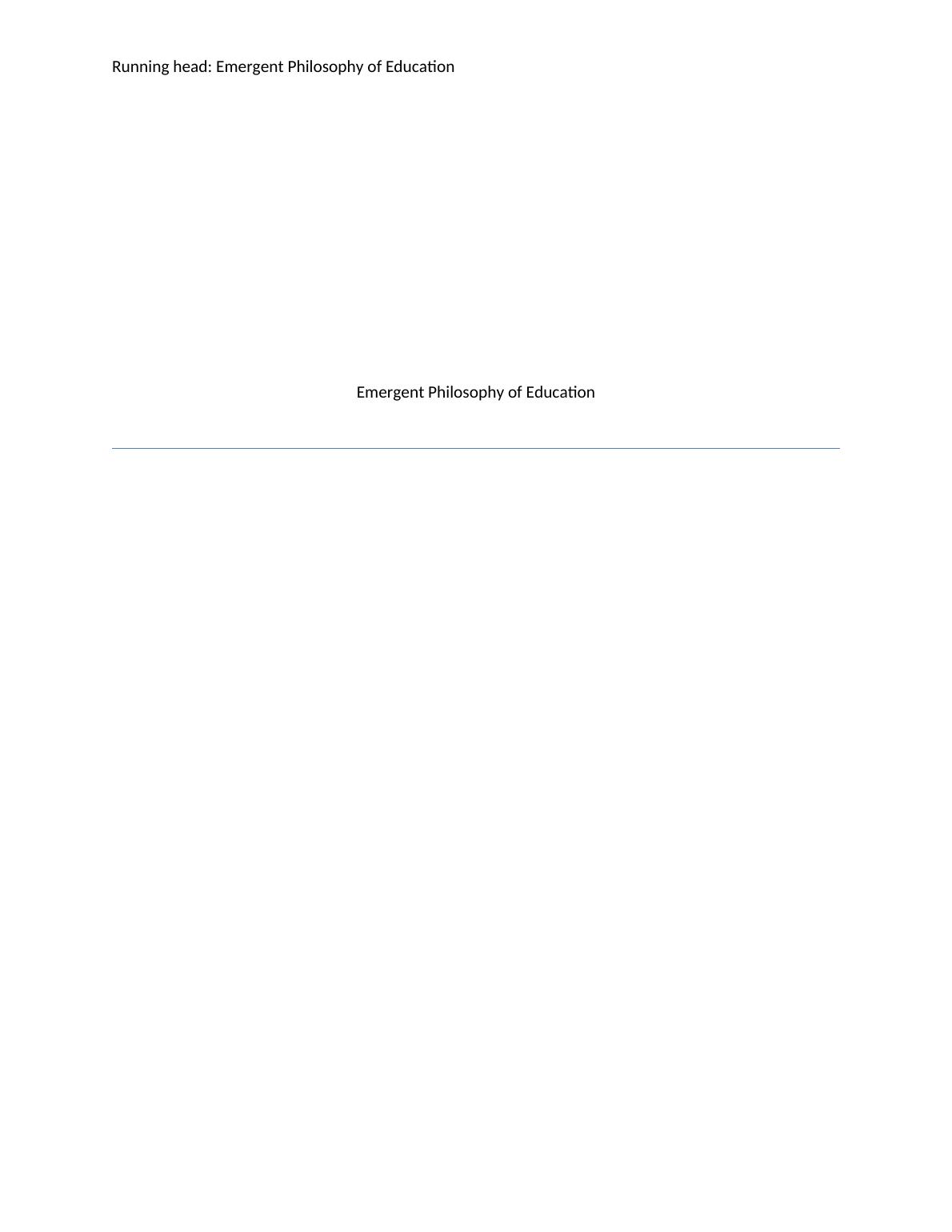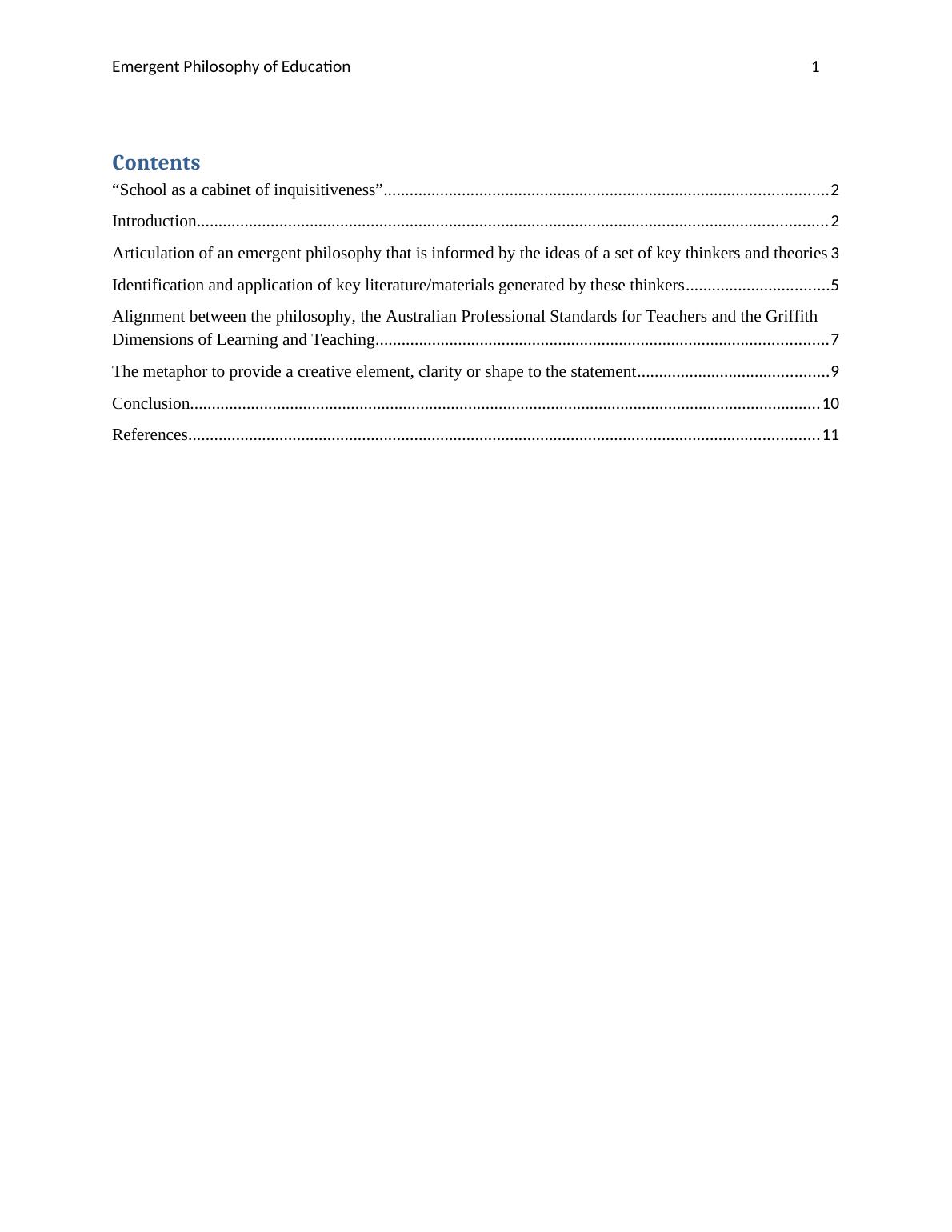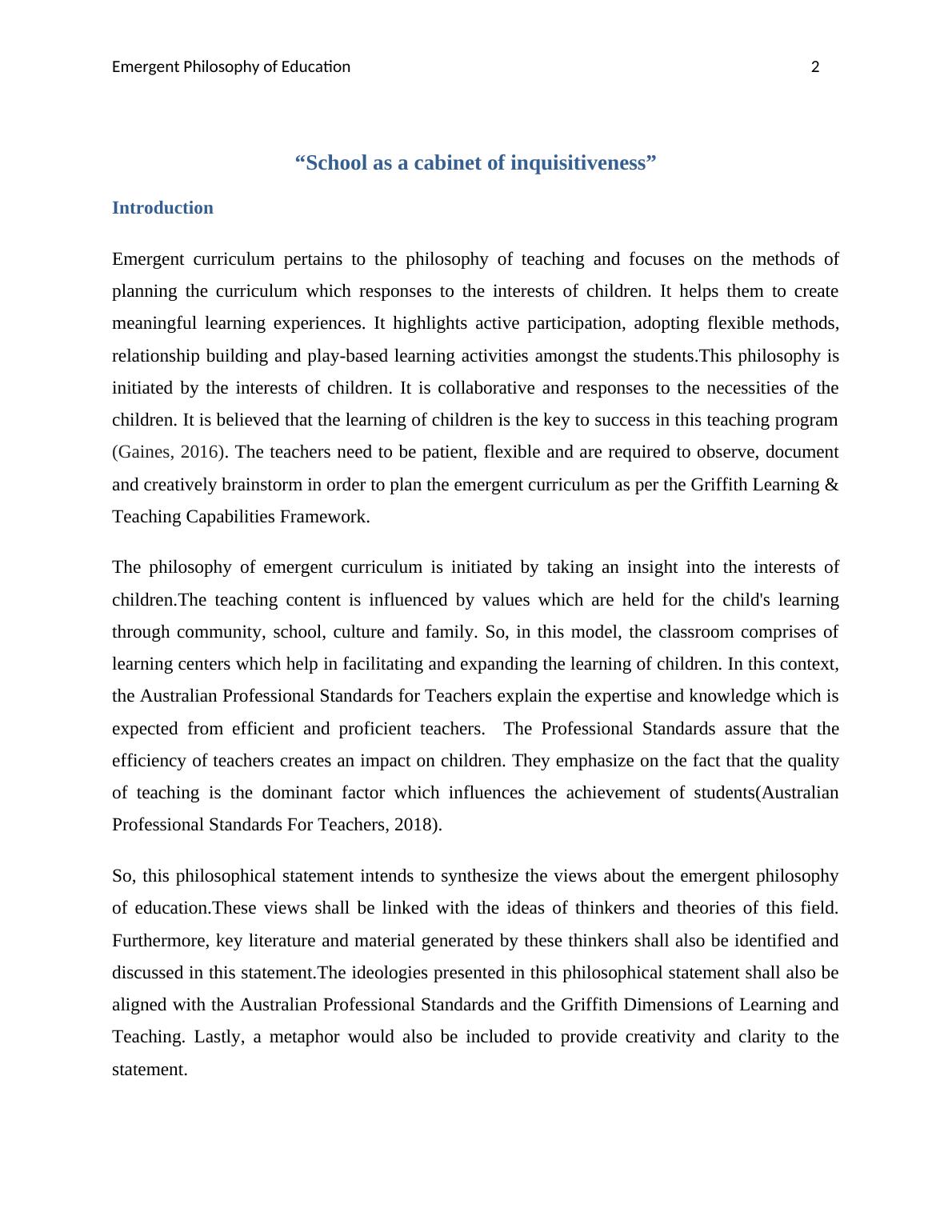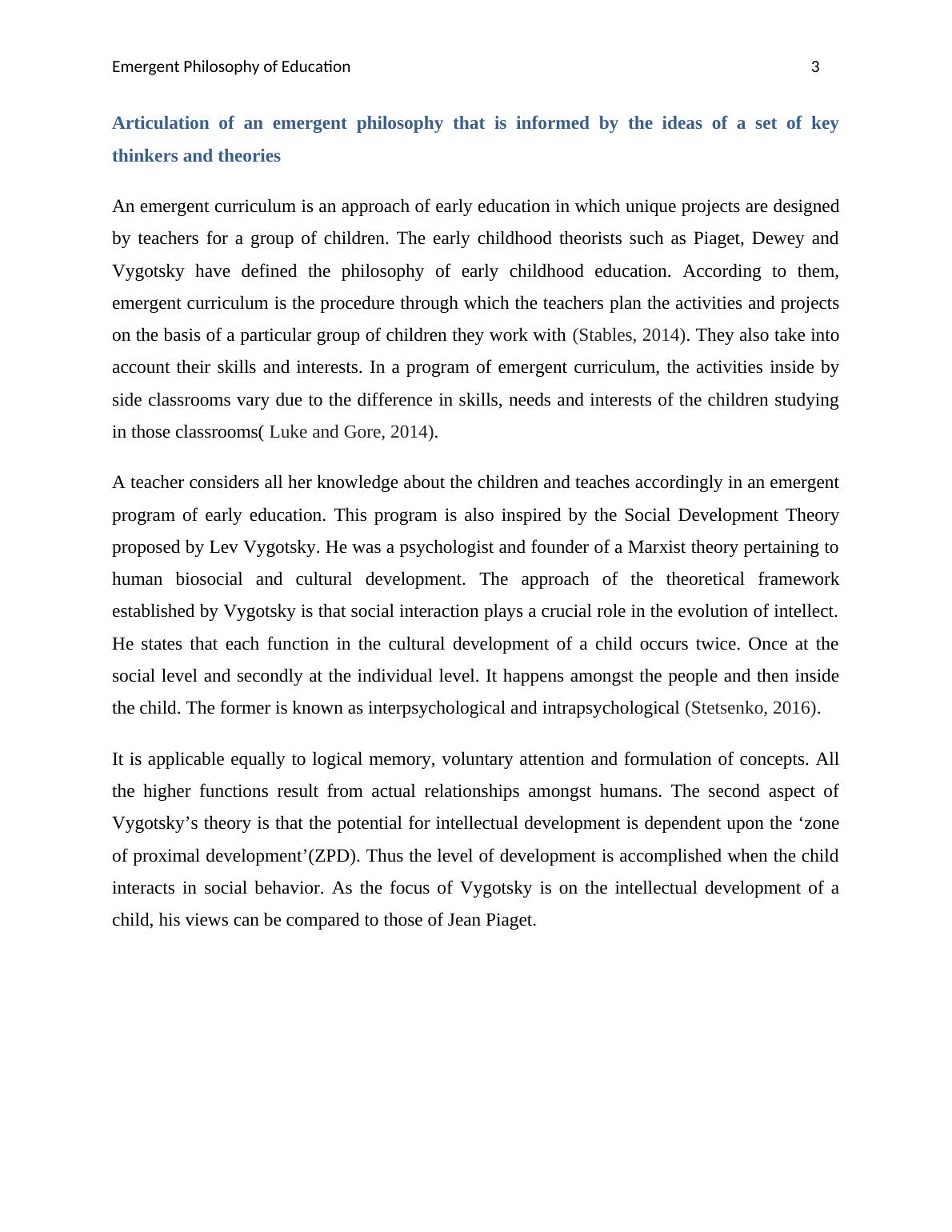Emergent Philosophy of Education
Create a philosophical statement that synthesizes views about education, discusses alignment with Professional Standards and Griffith Dimensions, includes literature references, and may include a metaphor or be structured according to Griffith Dimensions framework.
14 Pages4193 Words80 Views
Added on 2023-01-17
About This Document
This article explores the philosophy of emergent curriculum in education, focusing on the methods of planning the curriculum that responds to the interests of children. It discusses the key thinkers and theories that inform this philosophy, as well as the alignment between the philosophy, the Australian Professional Standards for Teachers, and the Griffith Dimensions of Learning and Teaching.
Emergent Philosophy of Education
Create a philosophical statement that synthesizes views about education, discusses alignment with Professional Standards and Griffith Dimensions, includes literature references, and may include a metaphor or be structured according to Griffith Dimensions framework.
Added on 2023-01-17
ShareRelated Documents
End of preview
Want to access all the pages? Upload your documents or become a member.
An Analysis of Teacher Quality Policies in Australia
|16
|5446
|307
View of the Objective and Learning Outcomes of the Programme
|8
|1671
|84
Develop Your Personal Philosophy PDF
|8
|2251
|52
Purpose of Resources in Learning and Teaching
|11
|3420
|453
Mathematics for Young Children (Doc)
|17
|4930
|51
Education and Care Program Design in Early Childhood Setting Assignment 2022
|11
|2714
|42




